Responsible AI and Privacy Best Practices
What?
A plain English guide for best practices to leverage AI responsibly while complying with privacy laws and data residency regulations.
Who?
Salesforce Admins, Business Analysts, Architects, Product Owners, and anyone who wants to tap into their Salesforce + AI capabilities while prioritizing data privacy and adhering to regulations.
Why?
Unleash AI. Protect Privacy. Comply with Ease.
Understand best practices to ensure your Salesforce + AI deployment complies with privacy and data residency laws.
What Can You Do With It?
GPTfy’s best practices in AI privacy and data residency are designed to:
- Comply with regional privacy laws.
- Control who has access to AI capabilities.
- Customize AI functionalities according to user profiles, objects, and record types.
- Automate data retention in line with regulatory requirements.
Regional Privacy Law Compliance
If you have a global Salesforce org, you must comply with local privacy regulations, such as:
- California’s Privacy Rights Act (CPRA/CCPA) in the U.S.
- General Data Protection Regulation (GDPR) in Europe.
- Data Protection and Privacy (DPDP) principles.
- CNIL (France), ICO (UK), HIPAA (for PHI), FINRA, PCI, and other industry-specific laws.
Example: For GDPR, your Salesforce + AI system may need explicit opt-ins and privacy protections for EU customers that are not required for non-EU regions.
Geo-Specific AI Enablement
With GPTfy, AI capabilities can be selectively assigned based on users’ geographic locations.
- Example: AI features available in the U.S. might be restricted in the EU.
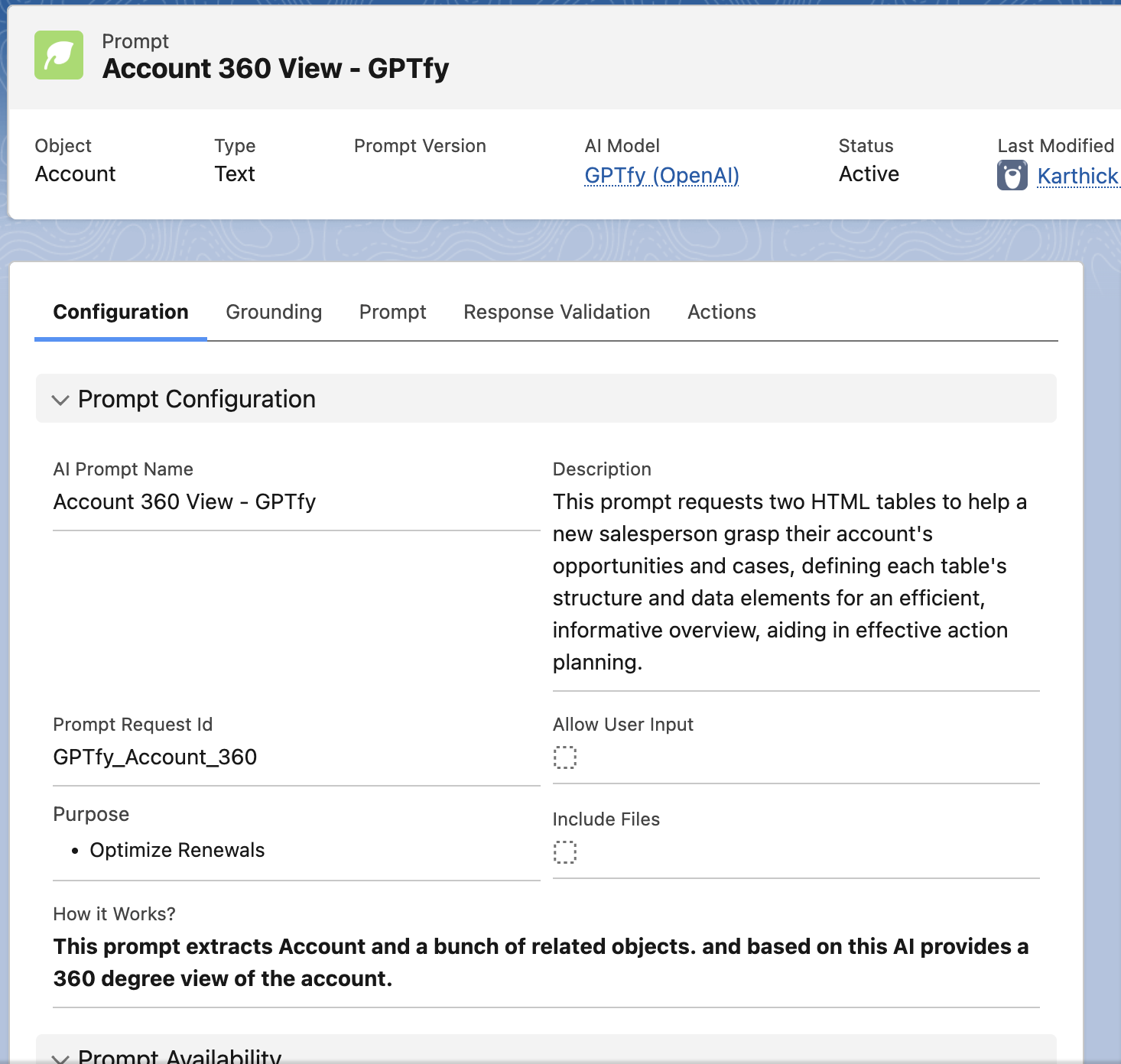
User-Specific AI Access
AI access can be limited based on user roles or profiles.
- Profile Level: Manage broad access by assigning prompts to specific Profiles (e.g., System Administrator).
- Permission Sets: Grant granular, additive access to specific user groups without modifying core profiles.
- Visibility Conditions: Control exactly when a prompt appears using field-based logic (e.g., IsClosed = TRUE) to ensure context relevance
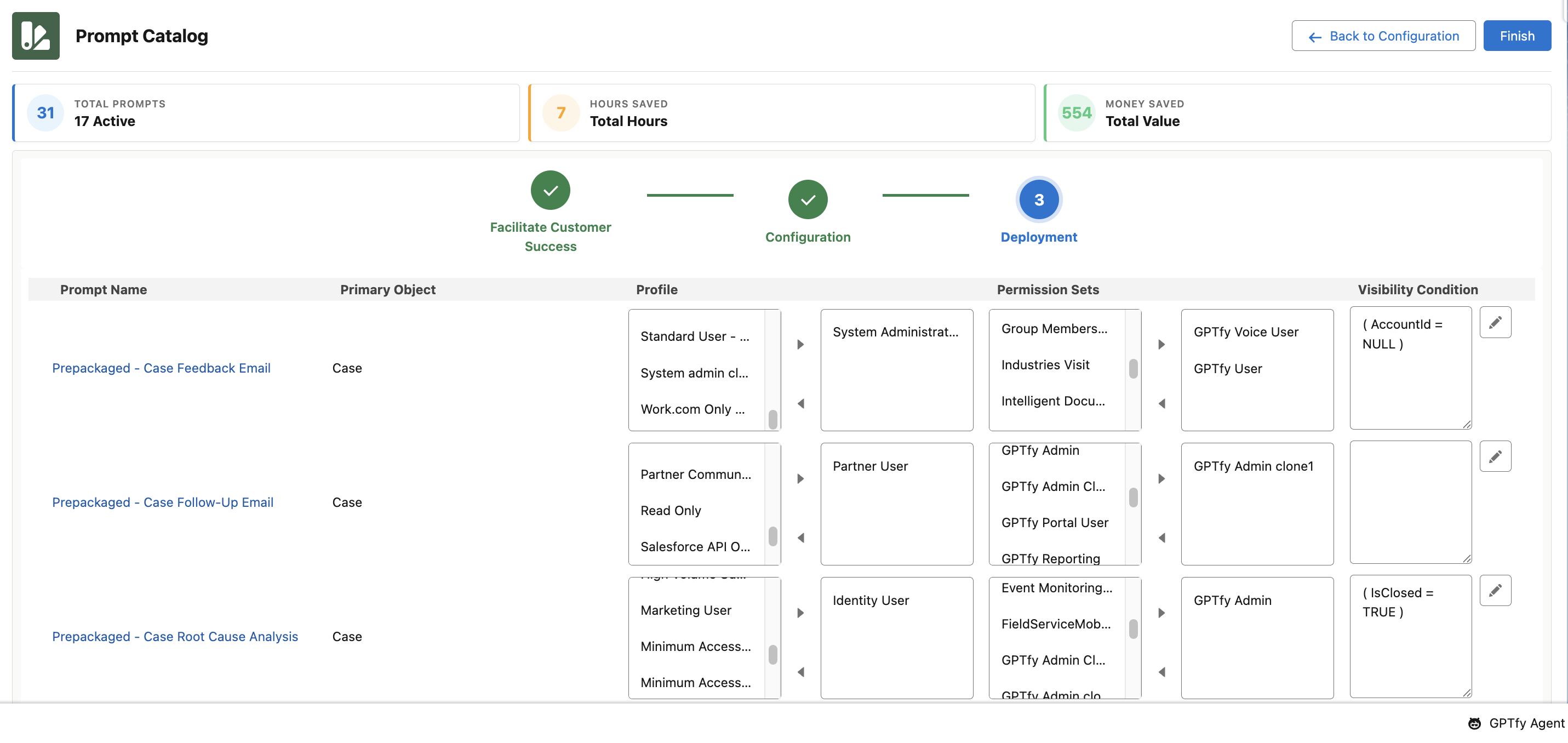
Limit AI Processing by Legitimate Basis
Data Minimization
- Limit AI processing based on location, consent (opt-in), or legal basis.
- Avoid processing Material Nonpublic Information (MNPI) without proper legal justification.
Purpose Limitation
- AI should only process data for the explicit purpose stated during data collection.
Data Quality and Accuracy
- Maintain accuracy.
- Provide audit logs and allow for data corrections.
Data Retention and Audit Capability
Automated Retention Control
- GPTfy automates retention of AI logs (“Security Audit” records).
- Configure to delete data automatically after set periods (e.g., 30 days).
- Comply with minimal data retention rules (e.g., GDPR).

Security Audit
Each AI interaction generates an audit record with:
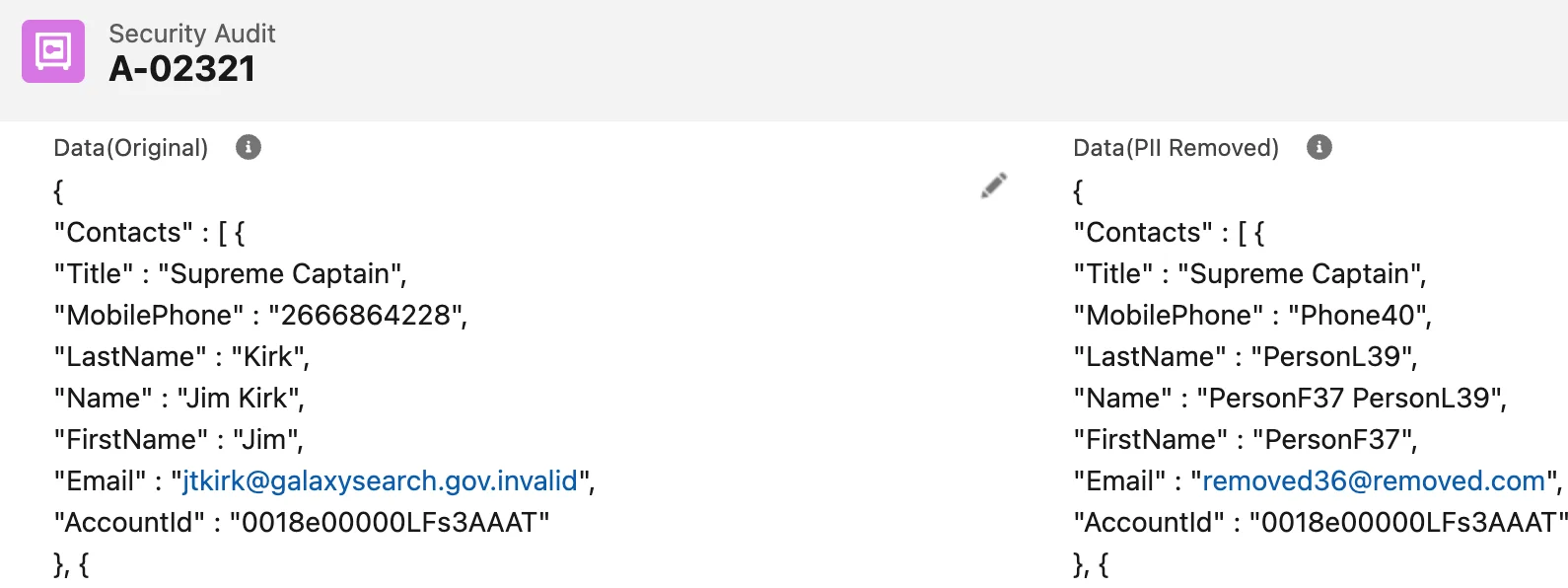
- Details Tab: Prompt, command, errors, record ID.
- Context Tab: Encryption key, raw data, processed data.
- Response Tab: AI response with and without PII.
- Feedback Tab: Linked user feedback.
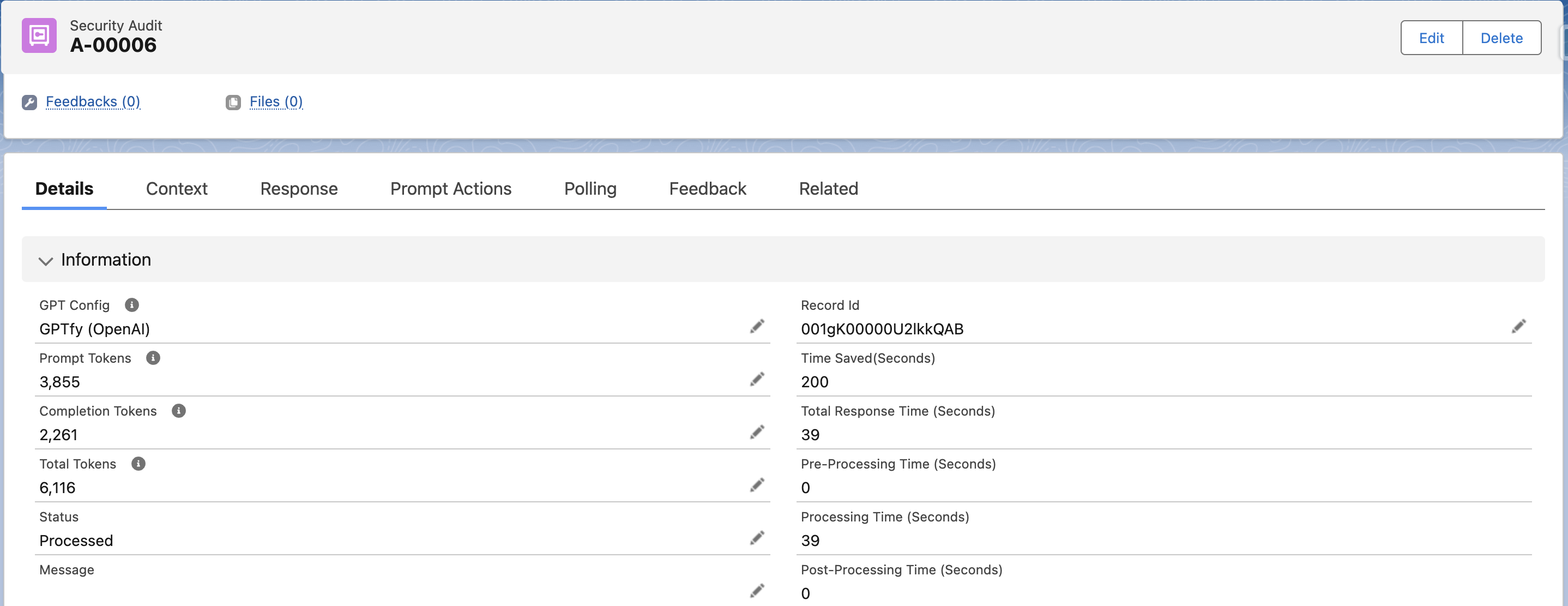
This creates a transparent and accountable trail of all AI interactions.
Data Residency
Data residency refers to the legal jurisdiction where data must reside.
- Different regions = different laws.
- Crucial for compliance and transparency.
Multi-Regional AI Support
GPTfy supports various AI providers:
- AWS Bedrock
- Anthropic/Claude
- AWS Comprehend
- Microsoft Azure
- OpenAI
- Google Vertex, Gemini, Bard
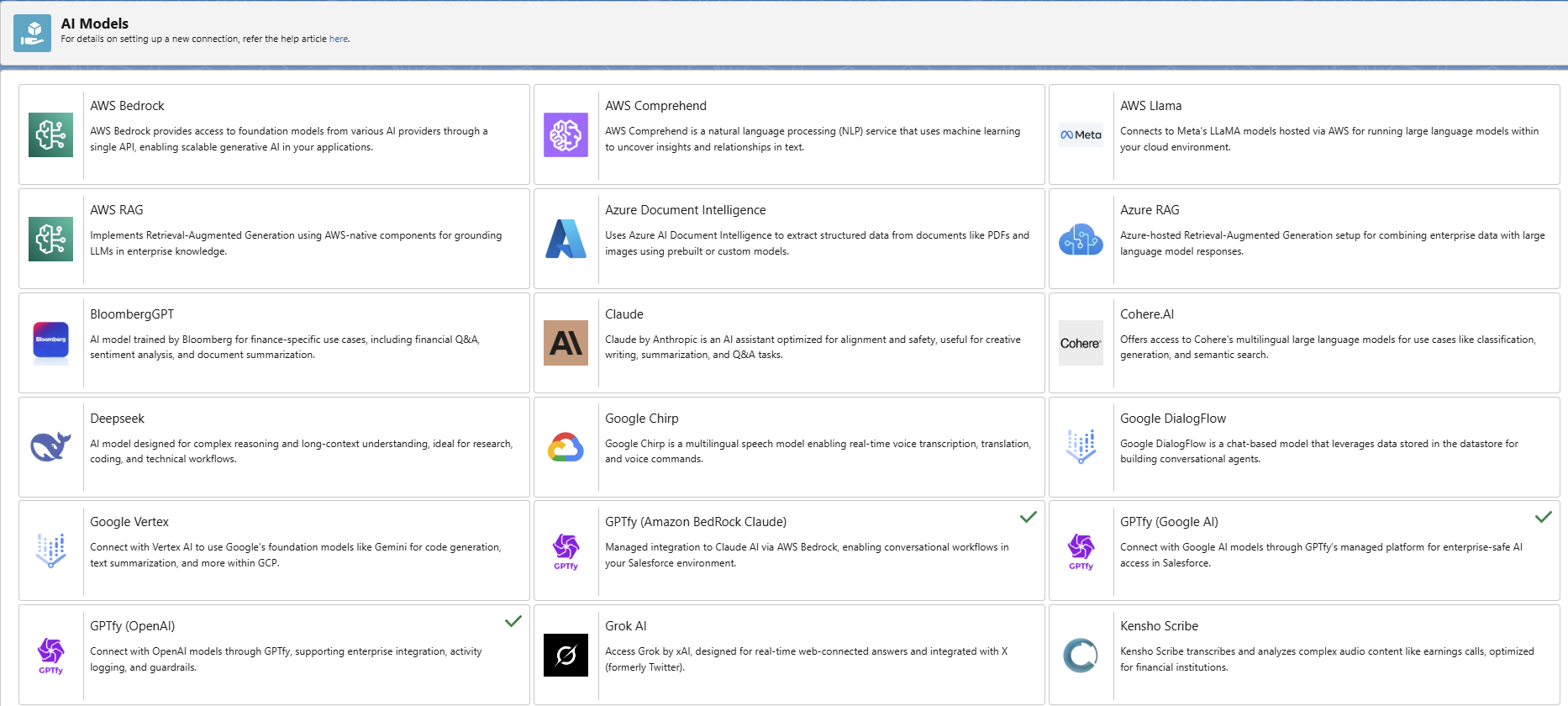
These providers can be selected based on the geographic location of users/data.
Data Sovereignty
Control which AI provider is used, ensuring:
- Data remains within compliant jurisdictions.
- InfoSec teams have provider-level governance.
Third-Party Data Sources & APIs
GPTfy supports secure integration with external APIs and platforms:
- Examples: DnB, Bloomberg, Kensho, GovWin, Explorium
- Helps ensure data integrity before it’s sent to AI.
- Enables real-time risk assessments and innovations.

Conclusion
GPTfy’s capabilities ensure your Salesforce AI integration is:
- Secure
- Compliant
- Efficient
- Salesforce-native
Bring Gen AI securely and safely to your Salesforce org with GPTfy — for free.